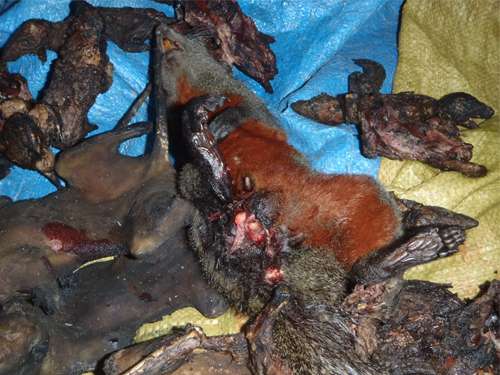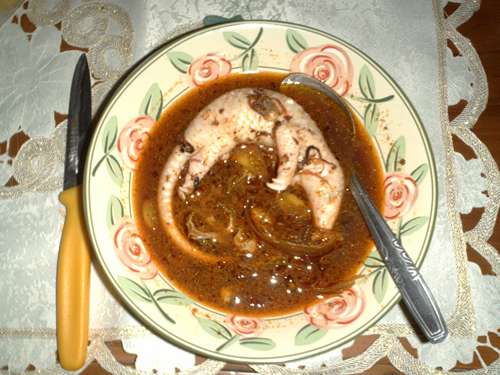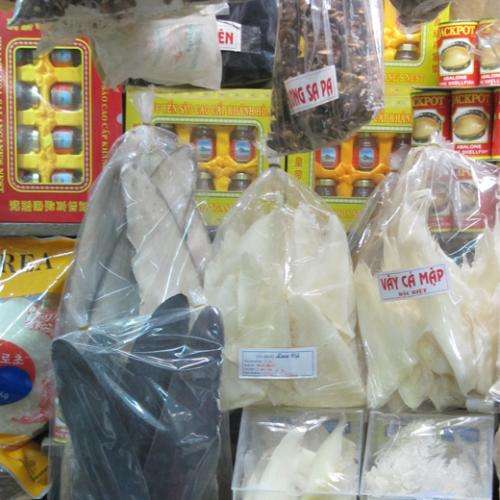Moratorium on wildlife consumption issued for Vietnamese New Year

The Central Party of Vietnam has issued a condemnation of wildlife consumption prior to the Vietnamese New Year of Tet.
With the rise of a middle class with more disposable income, Vietnam has become a centre for wildlife trade, as reported in the Asian Journal of Criminology. The consumption of rare species, traditionally considered medicinally beneficial or valuable for their scarcity in Sino-Vietnamese culture, appreciably rises during Tet, a holiday during which lavish displays of wealth are commonly displayed.
By serving guests rare or unusual species, a host may show his largess, displaying his fortune and hopefully increasing his luck for the coming year. The reasons for the consumption of products from wildlife such as tigers, bears, sharks, primates, and snakes are varied, with claims including aphrodisiac effects, medicinal benefits, and in some instances, purely as gourmet delicacies. One thing is certain: an upwardly mobile population in Vietnam is now able to consume animal and plant products that were previously not affordable. This in turn has had a devastating effect on species both within Vietnam and abroad. Rhino horn alone sells for more than $100,000 per kg, and is in extremely high demand.
In Vietnam, local wildlife also fall prey to medicinal misconceptions. Primates, many of which are endemic to Vietnam and Critically Endangered, are killed for what is believed to be medicinal properties.
"Monkeys are often hunted, shot, and then boiled down into glue," says Nguyen Van Truong, Programme Biologist for Fauna & Flora International in Vietnam. "The glue is then distilled into ruou (a vodka-strength traditional Vietnamese wine). This wine is believed to be good for many things, including healing a back ache, a head ache, and improving people's bones. As a result, many primates are shot, including some really rare ones."

Turtles are found commonly in markets, waiting to be turned into soup. Although the vendors claim that the turtles are farmed, there is no certificate to guarantee this, meaning that illegally harvested animals can be sold on the market with no proof of their origin. This week, two year old soft shell turtles were selling in Dong Xuan market in Hanoi for $14.20 per kg.
The Communist Party of Vietnam has published guidelines ahead of next week's Tet celebrations, to increase awareness of these destructive practices. The Vietnamese Central Committee for Propaganda and Education (CCPE) have recently issued Guideline 98-HD/BTGTW regarding the Awareness raising for no consumption and trade of wildlife and wild plants, which directs the wider Communist Party and consequently the public at large to disengage from the wildlife trade and adhere to Vietnam's very strict laws prohibiting the trafficking and purchase of wildlife products. In a centralised state such as Vietnam, the Central Party plays a large role in helping to guide policy.

The guideline was created with input from the Ministry of Natural Resource and Environment and "relevant authorities and organisations in the area of wildlife protection" according to an announcement issued on 27 December by the Vietnam Biodiversity Conservation Agency, and aims to raise awareness both within the Party and in the general public.
Fauna & Flora International, Wildlife Conservation Society and TRAFFIC support the CCPE in its issuing of these guidelines, and hope that they will have an edifying effect in the wider Communist Party. We also look forward to seeing how the awareness raising campaign will be conducted, and look forward to cooperating with the Party and the Government in raising awareness on wildlife trade and conservation issues in Vietnam in the coming New Year.
Provided by Fauna & Flora International



















